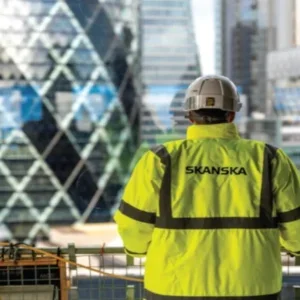
The Covid-19 pandemic has, of course, inflicted significant carnage on the global economy – damage likely to be measured in years rather than months. Against this backdrop – and in the absence of taking sufficient remedial action immediately – the negative impact of climate change continues unchecked. That’s not to say global corporations haven’t taken the warning signs on board; indeed, many already have when it comes to renewables and the need to reduce fossil fuel dependency. Case in point is RE100, the global corporate renewable energy initiative, bringing together 241 major businesses – at the last count – committed to 100% renewable electricity. Reading like a who’s who of global corporate entities, the London-based non-profit organisation – in partnership with the Carbon Disclosure Project (CDP) – works with the likes of Adobe, Bank of America, Dell, eBay, HSBC, HP and Unilever, among others, helping them to pursue renewable energy resource targets.
A global commitment
HP’s sustainability credentials, for example, are long-standing – having joined RE100 in 2016. And, like other members making up the organisation, it’s committed to sourcing 100% renewable electricity globally in the shortest possible time frame – 2050 at the latest. In HP’s case, the principal objective is to ensure all global operations are 100% powered by renewables by 2035, with an interim goal of 60% by 2025 as it commits to a circular and low-carbon economy. The circular economy hinges on the premise that waste, via the continual use of resources through reusing, sharing, recycling, for example, leads to the creation of a closed-loop system where resource use and waste manufacture – leading to pollution – is limited as much as possible. As Mary Curtiss, global head of energy and sustainability, corporate real estate and workplace services at HP explained in August 2019, the company is “proceeding further and faster on clean energy solutions and urging other forward-thinking companies to follow its lead”.
HP has similarly been active inside EV100 – a separate Climate Group initiative rolled out in 2017 – it’s stated aim being to make electric vehicles (EVs) ‘the new normal’ by 2030. And for good reason, given the transport sector is the fastest-growing contributor to climate change, accounting for 24% of global energy-related greenhouse gas (GHG) emissions annually.
40.6 Million
Units the global EV market is predicted to hit by the end of 2026 versus 8.6 million in 2018, giving a CAGR of 21.1% over the forecast period.
Fortune Business Insights
“We’re trying to gather companies to make global commitments on EVs and hit these goals by 2030. We want to make electric vehicles the standard.”
Helen Clarkson, The Climate Group
20%
Employees at HP’s Palo Alto HQ who plan to buy an EV within the next two years.
HP
It’s only logical
With businesses owning more than half of all newly registered vehicles on the road, according to the 2020 EV100 Progress and Insights Annual Report, the shift to EVs is both logical and sensible. Moreover, according to EV100, “by setting out their future EV purchasing requirements on an ambitious timescale, companies can drive mass roll-out and make electric cars more rapidly affordable for everyone around the world.
Under the EVA regime, members commit to one or more of four global objectives (through to 2030), including EV integration into directly controlled (owned/leased) fleets, where 100% of vehicles up to 3.5t (7,000lb) are to be EVs and 50% of vehicles of 3.5–7.5t (7,000–15,000lb). In addition, for logistics purposes, there is also the stated aim of having all urban/last mile deliveries to be EV.
Final objectives include having EVs in service contracts – for example, daily rental, contracted taxi providers and car sharing – and supporting EV uptake by staff, such as charging infrastructures installed at all relevant premises, as well as dedicated awareness programme/incentive schemes to promote EV use. As of 2018, for example, HP had already installed charging stations at 20% of its global office locations and was proactively tracking demand among its employees. It aims to install EVs infrastructure at all feasible company sites worldwide by 2040, as well as adding EVs to its own fleet.
In the meantime, EV100 had, by the end of its first year (2018), signed-up 23 major companies that collectively committed themselves to electrifying 145,000 vehicles across their operations by 2030. By 2020, the organisation had expanded to 77 companies. As Helen Clarkson, CEO at The Climate Group, said, “We’re trying to gather companies to make global commitments on EVs and hit these goals by 2030. We want to make electric vehicles the standard.”
Again, in HP’s case, sustainability ranks as one of the top three reasons why employees enjoy their workplace, according to an internal survey, with 20% of employees at the company’s Palo Alto HQ planning to buy an EV within the next two years. Consequently, installing charging facilities is seen as an important way for the company to offer benefits that appeal to the values and lifestyles of current and future employees.
Reap the rewards
Indeed, its forward-thinking approach is already reaping benefits, according to Ellen Jackowski, global head, sustainability strategy and innovation, HP. Describing how HP is aiming to provide the world’s most sustainable PC portfolio – in terms of use of materials, for example – Jackowski noted in a statement that, “Sustainability is integrated across our entire value chain – including the products we deliver to our customers”.
“In fiscal year 2019 alone, HP won more than $1.6bn in business due, in part, to our sustainability efforts – a 69% increase from the previous year,” she added. “As we continue to drive towards a circular and low-carbon economy, we are challenging ourselves to deliver innovative solutions that raise the bar on ourselves and our industry.”
Meanwhile, in a separate initiative, The Climate Group and BT Group recently launched the UK Electric Fleets Alliance in a bid to accelerate the switch to EVs. BT Group also happens to manage one of the UK’s largest commercial fleets. Yet while these initiatives/objectives are laudable, the Covid-19 global pandemic continues to cast a shadow – especially when viewed through the prism of how the existing ‘new normal’ has already impacted working practices and may impact grander ambitions longer term.
How long this ‘new normal’ lasts – or indeed whether it ends up becoming a semi-permanent feature of the corporate landscape – self-evidently remains open to question. And, depending on the longevity of Covid-19’s impact, previous assumptions regarding the global EV market – at least in the short to medium-term – may need to be revised. A May 2020 report from Fortune Business Insights, ‘Electric Vehicle Market Size, Share & Industry Analysis 2019– 2026’ projects the global EV market to hit 40.6 million units by the end of 2026 versus 8.6 million units in 2018, giving a CAGR of 21.1% over the forecast period.
The ‘new normal’
Yet this forecast couldn’t possibly have taken into account the full impact of Covid-19, given there is still no way of knowing what that overall impact will be.
If forecasting the size of the global EV market six years out arguably amounts to little more than a finger-in-the-wind exercise, what isn’t beyond dispute is that Covid-19 has laid bare the radical changes in our working practices over the past six months or so. Will these changes end up being permanent?
A recent Fleet News survey of fleet managers may offer a clue. While 74% of respondents unsurprisingly reported working from home, 15% working in the office full-time and the remainder doing a mixture of both, a separate Fleet News poll found that working from home would become the new normal for 68% of respondents. Working practices aside, managing costs remains the mantra for most fleet managers – even if they still have to examine how best to protect their drivers and fleets. In reality, it means tweaking existing business models, which will also likely mean contract modification where contractual mileage is adjusted to actual usage. Given distances being travelled are likely to be shorter – due to increased working from home, for example – it also paves the way for more efficient EVs to be added to fleets.
Another expectation is that lease contracts will likely become more flexible, giving customers the option of swapping vehicles and generally simplifying the way they do business. For fleets, changing working practices may yet have significant consequences – not least for the so-called grey fleet where employees drive their car for work purposes – in part due to ongoing suspicion of public transport.
Employee-owned cars may be deemed ‘grey’ if the vehicles in use operate in a grey area when it comes to the employer’s obligations. Consequently, these responsibilities are often overlooked and misunderstood. Employers are legally obliged, for example, to ensure grey fleet vehicles are reasonably safe to use, fit for purpose and lawfully on the road. An employee working from home as opposed to the office, for example, may mean employment contracts have to be changed since a journey from home to office could be classified as a business trip.

While the ‘new normal’ is readily identifiable, as far as Covid-19 is concerned, business owners need to be mindful as lockdown rules are progressively relaxed. That means thinking ahead, planning for various potential outcomes and buttressing existing risk management procedures.
A sustainable impact
What’s clear is that fleet managers haven’t been deflected from the prevailing view that EVs are the future. Indeed, a March 2020 report from Samsara, ‘The Power of Data Transparency: Electric Vehicles’, which surveyed 300 fleet managers in the US, underscores this point. It found that 32% of fleet managers say that their fleets will be one-quarter electric within five years and 50% in ten. Interestingly, 53% of respondents said they would use cost savings from EVs to increase driver wages.
To drive EV adoption, the survey also found that the industry needs to focus on cost savings and efficiency, not just environmental impacts. Unsurprisingly, 92% of fleet managers said that their confidence in running their fleet is directly related to how much information they can monitor across all their vehicles – while 88% agreed that now is the time to invest in efficiency improvements, ahead of a possible recession.
Covid-19 may have temporarily put the brakes on the global economy, but the underlying narrative regarding EV adoption hasn’t fundamentally changed, given climate change and corporate efficiency will continue to remain major issues for the future.
The gradual global shift to sustainable vehicle usage makes sound business sense too, as Curtiss clarified, “HP’s commitment to sustainability helped the company win more than $900m of new revenue in 2019. Every choice has an effect. As a business community, it’s our responsibility and opportunity to make choices that have a sustainable impact.”
100%
HP’s aim for its global operations to be powered by renewables by 2035, with an interim goal of 60% by 2025.
HP






